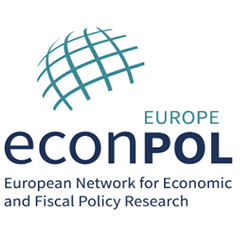A change in US monetary policy could impact global exchange rates
High stocks of government debt denominated in foreign currency may depreciate domestic currency, according to new research from EconPol Europe. And, say authors of the report, the prospect of a change in monetary policy in the United States could have a significant impact on global exchange rate regimes.
In an analysis of the international transmission of interest rates, researchers found significant spillovers from the U.S. interest rates to other countries, mostly for advanced economies. A dampening effect of the share of external liabilities in the domestic currency was also found, which researchers flag as a clear determinant of risk premium.
“The prospect of a change in monetary policy in the United States matters for other countries, and this may be true whatever their exchange rate regime,” says co-author António Afonso of REM Lisbon. The findings, he adds, are particularly important for countries with high foreign reserves.
“In our paper, we focus on the role of government debt and international reserves,” explains Afonso. “The level of government indebtedness has two opposite effects on domestic long-term interest rates. It has a positive effect since it influences risk premiums and sovereign bond yields typically upwards, and the latter can influence other interest rates in the economy.
“However, it can also have a negative impact if there is some indirect monetary financing of budget deficits, notably via quantitative easing measures, which expands the liquidity in the economy and lowers short-term interest rates. The accumulation of international reserves may reinforce this liquidity effect by increasing money supply.”
The research also uncovered a negative effect of international reserves on interest, with higher reserves decreasing risk premia for long-term interest rates. The significance of spillovers fades once the sovereign debt reaches 100% of GDP in developed countries.
The trilemma of international finance – fixed exchange rates, free capital flows and independent monetary policy – still holds, say researchers, although they warn that true monetary independence can only be achieved through capital controls.
“We notably find that the government debt can have a liquidity effect on short-term rates, leading to their reduction,” concludes Afonso. “For the long-term rates the net effect is nil or the opposite effects of liquidity and risk cancel out each other. A higher level of international reserves can help to reduce long-term interest rates.”
Read the full paper: https://www.econpol.eu/publications/working_paper_54
About EconPol Europe


























